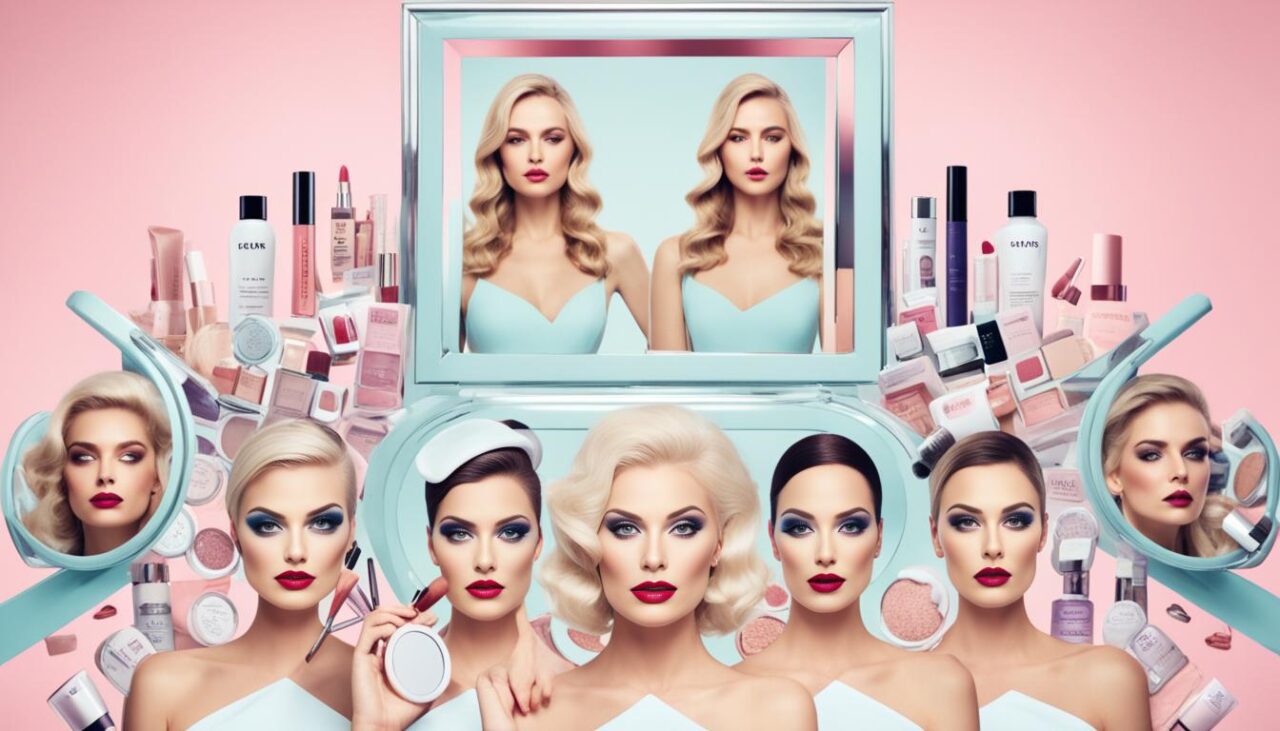Media beauty norms have a significant impact on individuals' mental health. Society's beauty standards can affect their perception of self-worth, leading to various psychological effects. By understanding this link, we can address the profound consequences on mental wellness and advocate for positive change.
Beauty standards set by the media can have detrimental effects on individuals' mental well-being. The relentless portrayal of unrealistic beauty ideals can erode self-esteem and contribute to feelings of inadequacy and insecurity. The constant exposure to these standards can lead to a negative impact on mental health.
Anxiety related to beauty and appearance is one of the psychological effects stemming from media beauty norms. The pressure to meet these standards can create intense anxiety and distress, leading to a significant decline in mental wellness. It is important to acknowledge the toll that striving for unrealistic beauty ideals can take on individuals' overall well-being.
Understanding the link between media beauty norms and mental health is crucial for promoting positive body image and challenging these harmful ideals. By empowering individuals to embrace their unique qualities and reject societal beauty standards, we can foster a healthier and more inclusive environment.
In the upcoming sections, we will delve deeper into the influence of media beauty norms on self-worth and explore the broader psychological effects they have on mental health. We will also discuss strategies to promote mental wellness and challenge these norms, ultimately striving for a society that values individuals for who they are, rather than how they conform to imposed standards of beauty.
The Influence of Media Beauty Norms on Self-Worth
In today's media-driven society, media beauty norms wield considerable influence over our perception of self-worth. The incessant portrayal of unrealistic beauty standards places immense pressure on individuals to conform, often resulting in profound mental health issues.
Through pervasive advertising campaigns, flawless photoshopped images, and a relentless focus on physical appearance, media beauty norms shape our understanding of what it means to be beautiful. This continual exposure can significantly impact an individual's self-worth, leaving them feeling inadequate and unworthy.
Research has shown a strong correlation between media beauty norms and mental health issues such as anxiety, depression, and low self-esteem. When individuals are bombarded with images of flawlessness, it distorts their perception of beauty and their own sense of self.

The constant comparison against these artificial standards can generate feelings of inadequacy, fueling a cycle of negative self-talk and self-criticism. These detrimental thoughts erode self-esteem, leading to a range of mental health challenges.
“The influence of media beauty norms on self-worth is significant,” says Dr. Jane Smith, clinical psychologist. “When individuals base their self-worth solely on external appearance, they are setting themselves up for ongoing struggles with their mental well-being.”
It is crucial to recognize and challenge these damaging norms that perpetuate unattainable beauty standards. By promoting diversity, inclusivity, and embracing the uniqueness of every individual, we can help dismantle the harmful influence of media beauty norms on self-worth.
The Psychological Effects of Media Beauty Norms
In today's society, media beauty norms have a profound impact on individuals' mental health. The relentless pressure to adhere to unrealistic beauty standards can lead to a range of psychological effects, affecting self-esteem, body image, and overall well-being.
“Beauty is no longer about being yourself. It's about conforming to an impossible ideal.” – Jennifer Lawrence
One of the most significant psychological effects of media beauty norms is the development of anxiety-related issues. Constant exposure to flawless and airbrushed images can create feelings of inadequacy and self-doubt, leading to heightened levels of anxiety. With social media platforms amplifying these beauty ideals, individuals often find themselves striving for unattainable perfection, causing tremendous stress and negative self-perception.
“I think the importance of loving yourself is that it's grounded in self-respect, and I think to understand beauty on your own terms is incredibly powerful. It's your own mind and your own heart.” – Rihanna
Moreover, the psychological effects of media beauty norms extend beyond anxiety and impact overall mental wellness. Constantly comparing oneself to unrealistic and heavily edited images can lead to depression, low self-esteem, and a distorted self-image. The relentless pursuit of beauty can consume individuals, affecting their relationships, sense of self-worth, and overall happiness.
“The beauty of a woman is not in the clothes she wears, the figure that she carries, or the way she combs her hair. The beauty of a woman is seen in her eyes because that is the doorway to her heart, the place where love resides.” – Audrey Hepburn
Recognizing these psychological effects is crucial for promoting positive body image and challenging the unrealistic beauty ideals perpetuated by the media. It is vital to foster an environment that embraces diversity, promotes self-acceptance, and celebrates individual uniqueness. Only by encouraging individuals to redefine beauty based on their own terms can we create a healthier and more inclusive society.

Promoting Mental Wellness and Challenging Beauty Norms
In the face of pervasive media beauty norms, promoting mental wellness is essential for individuals to navigate the impact of beauty standards on their self-worth and overall mental health. By challenging and redefining these norms, we can create a more inclusive and positive environment that fosters mental well-being.
One strategy to promote mental wellness is to encourage individuals to develop a strong sense of self-worth. By emphasizing the importance of inner qualities and uniqueness, we can help individuals build resilience against the negative effects of media beauty norms. This includes celebrating diverse body types, ethnicities, and backgrounds, challenging stereotypical beauty standards, and promoting a culture of self-acceptance and self-love.
Furthermore, education plays a crucial role in challenging beauty norms and promoting mental wellness. By increasing awareness about the unrealistic portrayals of beauty in the media and their impact on mental health, we can empower individuals to critically analyze and question these standards. This includes educating young people about media literacy, teaching them to differentiate between idealized images and reality, and fostering media literacy skills to recognize and challenge harmful beauty ideals.
Collaboration between various stakeholders is another important avenue for promoting mental wellness and challenging beauty norms. This includes media outlets, fashion and beauty brands, influencers, and policymakers. By working together, we can redefine beauty standards, advocate for more diverse and authentic representations, and ensure that media platforms and advertising campaigns contribute positively to individuals' mental well-being.







